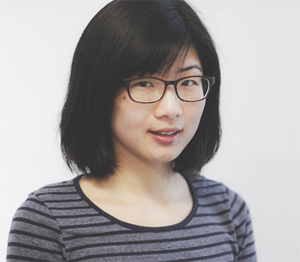Five things that I have learned from finishing a PhD
By Dr. Feifei Zhou

Dear readers, my apologies for resorting to list-making when writing down my thoughts on finishing a PhD. The list format comes in handy, as just considering what is involved in finishing a PhD is daunting. Though I have learned many things, here are five things that have stuck with me.
First, never hesitate to write emails and make contact. Five years ago in Shanghai, on knowing the works of Roy Harris (who was at that time already approaching his eighties), I visited his website and sent an email asking him, “where could I do a PhD related to Integrationism?” Two days later he replied with the contact information of both Professor Chris Hutton and Dr. Adrian Pablé from our School of English. Five years later, I completed and successfully defended a thesis, which critically examines the models of ‘human’ in twentieth-century linguistic theories (including Integrationism) under the mentorship and supervision of these two.
Second, try to treat a PhD as a nine-to-five job. An advantage of doing research is that we have a flexible schedule, yet it could also mean that we will not have real weekends, real holidays – at a certain point, my thesis became a pair of colored glasses that I needed to wear in order to get around. I could not help having a conversation or watching a movie without thinking how this could relate to the chapter that I was working on, and how it could serve as an illustration to a specific linguistic argument. In the end, I decided a wise solution was to block my mind from any thoughts about the thesis after a whole day’s work. Basically, what worked for me was to treat it as a nine-to-five job. On the other hand, it also meant I would not give myself the luxury of taking a day off just because I did not feel inspired. Many of you would disagree: a PhD is, after all, about thinking and writing. It is not a factory assembly line. And what’s the point of continuing when there is no inspiration? I do agree that writing a thesis is very different from working in a factory, yet, it is not only about inspiration either. Drafting, redrafting, revision, again and again, hard labor and Zen-like patience sometimes count more than the often elusive inspiration. And it is usually the case that inspirations come as a surprise after we, at nine o’clock in the morning, simply tell ourselves to sit down and DO some work.
Third, choose a sport. Surround yourself with people and survive a PhD. My life as a student living away from family and friends in a totally new city would never have been as enjoyable and fulfilling– and I could never come to possess the mental power and physical strength called for in times of difficulties—if I didn’t learn to dance, literally. I went out regularly with a group of dancing buddies. Every Wednesday evening, from the moment that I showed up on the dance floor, all worries related to work would be gone like I was stepping into another world. The music would sweep me off my feet and the only thing left to do was to follow the rhythm, together with my partner. It might sound like an escape from reality, but spending years individually researching on a PhD thesis can feel quite detached! Participating in a group activity on a regular basis actually plugs us back into ‘reality’.
Fourth, female PhDs are not a third gender. In China, they say “there are three kinds of people in the world: men, women and female PhDs” to highlight the commonly perceived lack of feminine beauty and over-display of rational (thus considered masculine) reasoning in female PhD students. It is also suggested that their capacities of rational reasoning make them less attractive in a feminine way. And I have to say that this is total NONSENSE. In the past four years, I have known and worked with many female PhD students who do possess a high level of critical thinking and reasoning, which in no way reduces their beauty as a woman. I am convinced that they are not of a so-called “third gender”, but a new type of woman that a sexist society still needs time to accept and appreciate without any green-eyed grudges.
Fifth, it is such a privilege to be paid to do a PhD. Instead of experiencing any strong sense of personal achievement, I was more stricken with the realization that it was a great honor to spend four years working on a thesis without worrying where food and clothes came from. For me, it also meant to be able to live in Hong Kong, to be exposed to sets of new ideas which were not accessible in Mainland China, to travel for conferences and tourism all over the world (I’ve been to 15 countries in the past four years), and to meet, work with and befriend people that I wouldn’t have otherwise met. Thus, to use a cliché, on completing the degree, I was all ready to make myself “useful” to society. Again very luckily, I found a teaching position in a competitive business college in HK, where I aspire to be an inspiring English lecturer and continue to evolve in my Post-PhD era.

Our apologies, you must be logged in to post a comment.